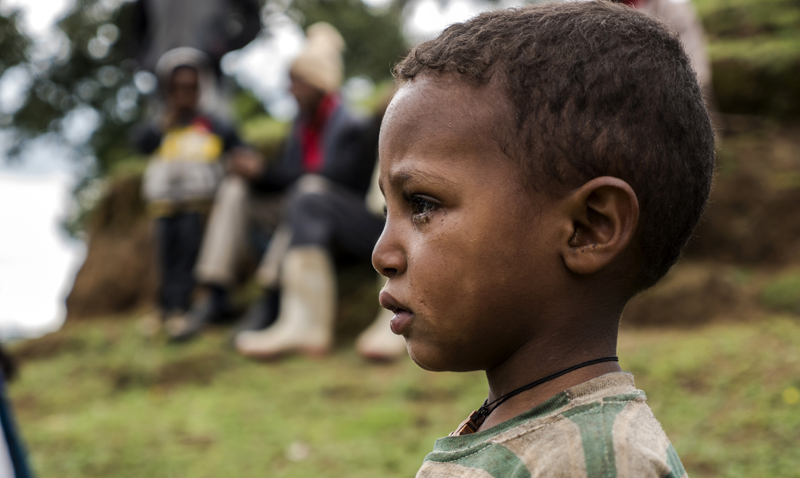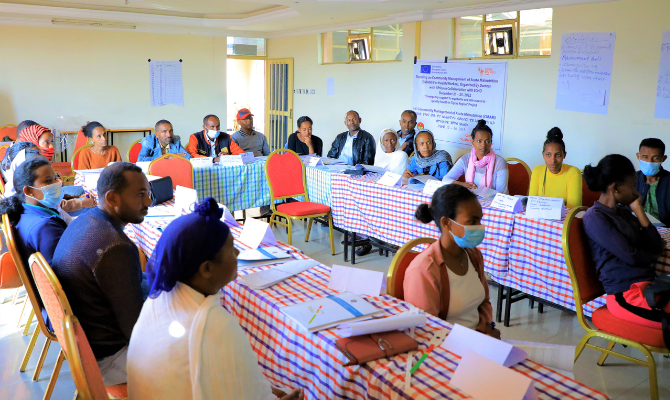Doctors with Africa CUAMM is starting an intervention in Tigray, Ethiopia in the coming weeks. Thanks to funds allocated by the CEI, through Caritas Italiana, and in partnership with the Ethiopian Catholic Church, the intervention will focus on the area between Adigrat and Makellè, the region’s main cities, and will support three health centers, managed by different religious congregations, severely damaged or destroyed in the conflict that started last November 4th.
These centers are the Idaga Hamus center, not far from Adigrat, almost entirely destroyed in the conflict, and the health centers of Shire and Alitena, in the central area near Adua. There is a shortage of life-saving drugs, health aids, equipment, clean water, and electricity.
CUAMM will also supply medicines and medical materials to the Ayder government hospital in Makellé, which has also been severely impacted. Along with repairing the centers, the health personnel also has to be motivated to return to providing care and relief to the people.
“An estimated 5 million people are in need of food. That is about 70% of a total of 7 million people (the population of Tigray),” says Riccardo Buson, CUAMM’s representative in Ethiopia. “The health system is almost completely decimated. An unknown number of health centers have been looted and health workers, not having been paid, have left their jobs. WHO estimates that only 22% of health facilities are functioning. The people need everything, but food and health care first and foremost. The area in which we will be working for about the next 9 months extends from Adigrat to the north to Makellè to the south. The entire area is still extremely unstable. Up until now, no one could come in and communications were blocked. Some signs of improvement have been seen in recent days, and since February 26, humanitarian flights have also reopened to reach the two cities.”
The director of CUAMM Don Dante Carraro explains the choice to act here: “The situation in Tigray is very bad. According to the little information that makes it to us, people are desperate and fleeing because they are afraid of massacres and violence. They are leaving their homes and hiding from the rebels, with no clean water or food for days. ‘It’s a cry for an urgent humanitarian emergency’: these are the heartfelt words of the bishop of Adigrat, Msgr. Tesfaselassie Medhin. How can we remain indifferent in the face of such a dire request, in the face of such extreme need? When the bishop asked us to intervene and told us about the situation, we decided that something had to be done. We have been active in Ethiopia since 1980 aiming to help develop the health system. We are currently in Gambella, in the west, in Wolisso, in the center, not far from Addis, and in South Omo, in the south. For 10 years we have also worked in Adigrat, in a center for the disabled. At CUAMM, we do not retreat in the face of emergencies. We roll up our sleeves and try to find solutions, to offer practical answers, starting with small but essential actions such as rebuilding a health center and supplying lacking medicine.”
Since November 4, a conflict sparing no one has struck Tigray, in northern Ethiopia. There have been massacres, violence, ethnic cleansing, hundreds of faithful and pilgrims killed, and temples and monasteries destroyed, as recently confirmed by Amnesty International. There are at least 222,413 internally displaced persons in the Tigray region and 63,600 internally displaced persons in the neighboring regions of Amhara and Afar. According to the UNCHR, as of January 12, 2021, approximately 57,500 people have crossed the border into Sudan, mainly from Tigray. Ethiopia has a population of over 109 million and 80 ethnic groups. In Tigray, a northern region similar in size to Italy’s Lombardy and Piedmont together, there are 7 million people, mostly Tigrayans, 6% of the entire Ethiopian population. When Prime Minister Abiy, of Oromo ethnicity, came to power in 2018, relations between Tigers and the rest of the country became strained, leading to conflict and civil war.
In addition to the new front in Tigray, CUAMM continues to work in the rest of the country, especially trying to stem the spread of Covid 19 as much as possible. Doctors with Africa CUAMM recently launched the campaign, “A vaccine for us!”





